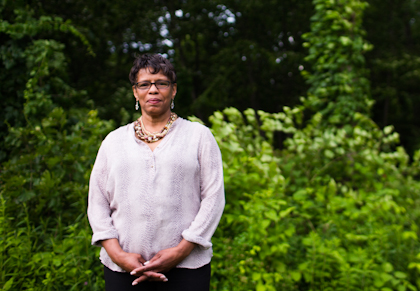AARP Hearing Center

By Natalie Missakian
When Joyce Ramsey, 68, talks with people about the federal Affordable Care Act (ACA), she finds that most aren’t sure how the law affects them.
“There’s a lot of misinformation out there. Folks don’t know whether we’re embracing a blessing or not,” said Ramsey, an American Red Cross outreach worker from Bristol.
The ACA prohibits insurers from denying coverage because of preexisting medical conditions or basing premiums on gender or occupation, and it eliminates most annual and lifetime coverage caps. Adult children through age 26 are able to stay on their parents’ insurance coverage.
Medicare beneficiaries do not have to purchase additional coverage, and the ACA gradually closes the so-called doughnut hole in Medicare Part D prescription drug coverage.
“There’s a lot to learn about the health care law, and it can be confusing to figure out what it all means,” said Jennifer Millea, AARP Connecticut associate state director for communications. “There’s a lot of information out there—some factual, some not—and it’s going to have different implications for different people.”
Volunteer presentations
Ramsey is one of about a dozen AARP Connecticut volunteers who have been trained to give presentations to community groups and answer questions about the law at health fairs and other events. AARP is participating in public forums and educational webinars, and directing people to its online resources, including an interactive tool that provides a personalized analysis of the law’s benefits.
Groups can request an ACA speaker by calling Erica Michalowski at 866-295-7279 toll-free or emailing emichalowski@aarp.org.
AARP will be participating in the Better Health Conference presented by CT Partners for Health on Sept. 17 at the Connecticut Convention Center, 100 Columbus Blvd., in Hartford. Registration is required at ctpartnersforhealth.org.
A webinar, The Health Care Law: What it Means to You and Your Family, will be held Sept. 19 at 7 p.m. Registration is required at aarp.org/healthwebinars.
While some aspects of the law are already in place, the heart of the ACA will begin Oct. 1, when people can enroll in the new health insurance exchanges—or marketplaces.
The exchanges are one-stop virtual shopping places where people can compare plans and buy coverage that takes effect Jan. 1.
Connecticut opted to run its own exchange, called Access Health CT, to tailor it to the state’s needs, said Access Health CT spokeswoman Kathleen Tallarita.
“What we need in Connecticut may be very different than what the residents of Idaho may need,” Tallarita said.
Three companies—Anthem, ConnectiCare and the new nonprofit Healthy CT—will sell bronze, silver, gold and platinum plans statewide. Bronze plans will be the least expensive but require patients to pay more out of pocket; platinum plans will be the most expensive and have the least cost-sharing.
Although anyone can buy insurance through the exchange, the state is focusing on its approximately 345,000 uninsured residents as well as small businesses.
Among the uninsured, 120,000 low-income residents—individuals with incomes up to about $15,900 and $32,500 for a family of four—will be eligible for coverage through an expansion of Medicaid.
The ACA requires most Americans to have health insurance beginning next year or pay a penalty of at least $95 on their federal tax return.
Ways to enroll
Residents can enroll by visiting the state health exchange’s website or through the Department of Social Services.
Many low- and middle-income people could qualify for a subsidy that will help pay their monthly premiums.
To reach those without access to a computer, Connecticut is sending trained “assisters” into communities and will open storefront enrollment sites in or around Hartford, Bridgeport, New Haven, Stamford, Waterbury and New Britain.
“We will be accessible right there in the most vulnerable cities,” said Tallarita.
For Ramsey, dispelling the myths surrounding health care reform is personal. She has a sister on disability who can’t afford private insurance to supplement Medicare, so despite suffering from obesity and diabetes, she doesn’t always seek a doctor’s care.
“This is a bright woman who graduated from Harvard School of Divinity and worked for years as a lay pastor in Indiana,” said Ramsey. She also founded a battered women’s organization in Massachusetts. “She’s taken care of people all her life and to end up in a place where you have to decide whether you can afford to be healthy—it’s not right.”
For more about how the Affordable Care Act affects you and your family, go to healthlawanswers.org.
Natalie Missakian is a freelance writer living in Cheshire, Conn.































































